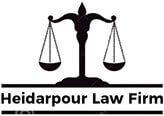Student Debt Relief Scams: Questions and Answers

Student loan debt has become an uncomfortable or even debilitating reality for many Americans. Federal student loans account for $1.620 trillion of the $1.748 trillion in total debt carried by U.S. students and former students. Unfortunately, new debt forgiveness options have opened the door to a variety of debt forgiveness scams.
Before you apply for federal student loan forgiveness, you need to understand the potential of getting scammed, the nature of such scams, and your legal options in case you do fall for a phony debt forgiveness offer. Start by studying the following questions and answers on this timely subject.
Why Have Student Debt Relief Scams Proliferated?
The Biden administration has issued a plan enabling massive student debt relief in the U.S. This plan applies to individuals who earn less than $125,000 and households that bring in less than $250,000 per year. People who hold Federal student loans may qualify for up to $20,000 in debt forgiveness, depending on the type of loan.
Despite a temporary stay placed by a Federal appeals court, the administration continues to encourage individuals to apply for this form of student loan relief. Scam artists have taken this flurry of application interest and activity as their cue to lure these individuals into applying through them instead of the U.S. Department of Education.
What Forms Do These Scams Commonly Take?
Student debt relief scams typically deceive people by pretending to represent either their regular loan provider or the Federal government. These deceptions can take the form of an email, a phone call, or an online ad. In fact, scams make up 10 percent of the ads displayed in response to related Google searches.
An email might direct you to click a link to a fraudulent application site asking you to supply personal financial information, while a phone caller might ask you to provide such information verbally. An online ad might promise to relieve all your student loan debt, a provision not guaranteed by the government’s plan.
How Can You Protect Yourself Against Scammers?
The first step in protecting yourself against a federal student loan relief scam involves trusting only one source: the U.S. Department of Education. Even then, you must watch out for scammers pretending to represent this department. Never respond to debt relief phone calls — instead, interact solely with the department’s website.
Learn to recognize the telltale signs of a typical student loan forgiveness scam. For example, any request for an upfront fee almost certainly indicates an unscrupulous attempt to extract funds from you. Keep in mind that the Biden Administration offers its student loan debt forgiveness program as a free service.
Take care to verify the actual sender of any emails claiming to come from the Department of Education. Avoid picking up the phone or saying anything to a caller offering student loan debt relief.
What Should You Do if You Get Scammed?
Unfortunately, even the most cautious individuals may fall prey to a particularly subtle or convincing scam attempt. If you think you gave your student loan ID or password information to a scam organization, file a complaint with the Federal Trade Commission immediately and change the password connected to your account.
You’ll also want to protect your bank account from any financial damage a scam artist might do with any information you provided. Ask the three major credit bureaus to place a freeze on your credit report, which will limit others’ ability to abuse your credit. Request that your bank stop payment on any transaction you already made.
Scam phone calls related to student debt relief may qualify as telemarketer abuse. An attorney skilled in this area of law may help you file a complaint or lawsuit against the telemarketer responsible. You may also want legal assistance in filing a report with the Consumer Finance Protection Bureau.
Whether you need help fighting a student debt relief scam or you’d like additional guidance on how to avoid such problems, Heidarpour Law Firm, PLLC can help. Contact our experienced legal team today.
